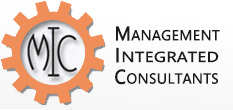QM30 – TQM: Total Quality Management
Objectives: Assist participants from local and regional organizations in different sectors, private or public, in understanding the concepts of TQM and ISO 9000 Quality Management System standards.
Benefits: TQM, being the umbrella for any quality improvement program within organizations, this workshop will provide participants with a strategic and corporate ability to establish a sustainable program for continually improving on their system, processes, and products by using up-to-date tools and techniques as applied by major organizations around the world, namely those who have successfully achieved the Malcolm Baldrige Award.
Who Should Attend: Participants in any management position, public or private, seeking to improve on their Quality Management System and develop continual improvement techniques on their system, process and product/service, to compete cost effectively on the global market.
Workshop Content:
Part 1 – The Quality Crisis:
Quality a business phenomenon, Perceptions of grade of quality, The quality crisis, Coping with the quality crisis, TQM & ISO 9000 Quality Management System standards, from national to world-class quality standards.
Part 2 – TQM Concepts and Theories:
The gurus: Deming, Juran, Crosby, Ishikawa, Feigenbaum… what was not covered by the gurus, the philosophy of TQM.
Part 3 – TQM Applied:
CEOs of Malcolm Baldrige National Quality Award winners and their concepts of Total Quality in their respective organizations.
Part 4 – TQM Principles:
TQM principles, TQM tactics and techniques, the customers, Tracks for integrated training and implementation, the pitfalls of TQM, Quality failure – the deadly diseases, ISO 9000 QMS principles and how they meet TQM principles.
Part 5 – TQM Strategies:
The new management model, Leadership, Customer focus, Strategic planning, Management, Employee involvement, Training, Reward and recognition, Employee focus, Customer contacts, Design, Process management, Supplier quality, Data collection and analysis, Benchmarking, System assessments, Management of change.
Part 6 – TQM Tools and Techniques:
A selection of tools and techniques: ENGT, statistical process control, charts and graphs, cause and effect diagrams, root cause analysis, failure mode and effects analysis, Pareto charts, etc.
Part 7 – From Principles to Implementation:
The four stages of an organization towards TQM, getting started on the TQM journey, TQM implementation – a 20 steps scheme.
Part 8 – From Implementation to Models:
The Malcolm Baldrige Quality Award, The ISO 9000: 2000 international quality management system standards.
Part 9 – TQM and The ISO 9000 QMS Requirements:
Rationale for quality management systems, ISO 9001: 2000 standards, Top management role, Evaluation and continual improvement, quality management principles.
Questions and Answers
Interactive Group Workshops (Teamwork)
Team Presentations
Certificate of Attendance
